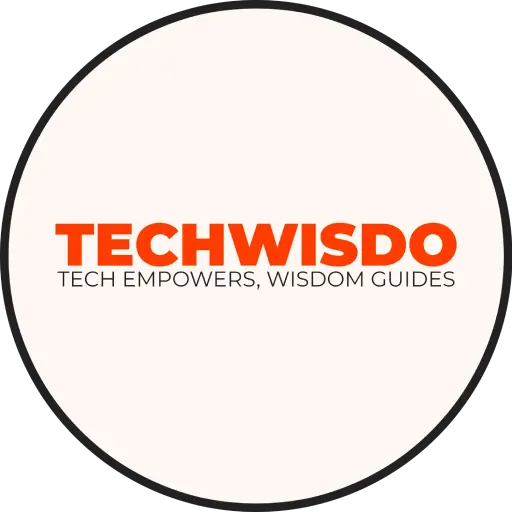Explore Nasdaq FintechZoom for the latest insights into financial technology trends, market analysis, and innovations shaping the future of finance.
Introduction
It is, however, clear that the financial arena has transformed significantly over the last decade, especially through the adoption of the fintech revolution. Fintech can be seen as a key driver of change and innovation within the traditional financial sector and industries. One source, which offers a richer coverage and expert analysis on such emerging trends is a online column – Nasdaq FintechZoom. Accepting the facts laid down by Nasdaq FintechZoom, this article seeks to understand the advanced trends in the subject financial technology and possible futures as a whole.
The Rise of Fintech
Financial Technology, more commonly known as Fintech, signifies a broad category of companies and technological advancements designed to improve and advance financial operations. Fintech involves mobile banking, peer-to-peer lending, block chain as well as robo-advisors because it is revolutionizing the financial services market. The use of these technologies by actors in the financial market is well captured in NASDAQ FintechZoom which provides a one-stop center through which one can gauge the nature and extent of disruption these trends are imposing on the sector.
Key Fintech Trends Highlighted by Nasdaq FintechZoom
- To administered, one noticed that digitalization in banking services is increasingly taking over traditional banking, especially through Neobanks. Neobanks are the banks that were established having no physical branches and offices as they are still based on the Internet. The services of such banks include but are not limited to, savings accounts, checking accounts, and credit facilities but unlike conventional banks they have no physical offices. As it has been reported by Nasdaq FintechZoom, there are several factors that explain the popularity of neobanks, including their convenience, affiliate fees, and improved customer experience over traditional banks geared toward Millenials and GenZ individuals.
- Blockchain and Cryptocurrencies Now, let us focus in on one of the biggest disruptions in the global banking sector: blockchain technology and cryptocurrencies. Nasdaq FintechZoom also explicate that blockchain refers to an innovative distributed ledger technology that provides more security and transparency in the transaction process. Previous dominant financial instruments, specifically, forex and gold, are gradually giving way to new cryptocurrencies – not only are these investments emerging as a trading product on their own, but they are also being actively used to make real transactions, most notably, international ones using Bitcoin and Ethereum.
- AI & ML are changing the financial services since they help to create a great and personalized experience for people, better manage risks and automate work. Nasdaq GlobalNewswire provides updates on how banks and other financial organisations are using AI as a tool for analysis of huge volumes of data to make market forecasts, identifying and preventing fraud, and for offering consultant services in the form of chatbots.
- Regulation Technology (Regtech) Due to the rise of the number of regulations in the financial industry, regtech is becoming a key stream of fintech. This table in Nasdaq FintechZoom describes how regtech solutions assist their buyers, the financial institutions, in addressing regulatory compliance through automation and data analysis. These technologies help to minimize the chances of violating the set legal and regulatory requirements and equally decrease operational expenses.
- It will also be valuable to examine the emerging transformative trend of insurtech in the insurance industry, which in essence enters into the application of technological advance for offering better customer relations or for embracing improved underwriting follow and claims handling. Insurtech companies mentioned in Nasdaq FintechZoom demonstrate how they implemented AI, big data, and IoT concepts in restructuring the traditional insurance solutions .
- Payment Innovations Among the main changes being witnessed globally is the emerging payment Industry technologies that are defining how various transactions can be processed. Nasdaq FintechZoom on, talks about things like digital wallet, contactless and real-time payment. The current COVID-19 pandemic has made these technologies more popular with consumers and businesses aiming at cashless transactions in order to reduce the risks of contracting the virus.
- Open Banking Open banking is another monumental shift here where banks and other financial firms make their API (Application Programming Interface) available to other firms or persons. It promotes an enhanced and diversify environment within the financial system. The Nasdaq FintechZoom also notes that open banking brings opportunities for customers to have a wider range of choices of financial services, for financial system innovation to take place, and for better customer experience.
- Peer to Peer Lending: Peer to peer also know as P2P lending is the practice of lending funds to a borrower without going through independent financial institutions. Nasdaq FintechZoom was studying how these platforms provide better and cheaper or simplified ways of borrowing and lending money than traditional methods.
The Impact of Fintech on the Financial Industry
The integration of fintech into the financial industry has several profound implications:
- Improved customer satisfaction is the ultimate goal of the fintech solutions, as their goal is to be simple to use. Mechanisms like mobile banking, AI-enabled conversational commerce common as chat bots, and enhanced financial advisory services have significantly enhanced customer first touch points and experiences.
- Improved access to financial services Fintech provides a possible way of taking financial services to the un-bankable majority. More so, the innovation in mobile banking and digital payment platforms is even highly significant within the developing zones that have had fewer physical banking infrastructures.
- Optimization of operations: Automation of various processes and the use of artificial intelligence minimize the extent of requiring manual inputs in various operations, making it possible for financial institutions to effect significant improvements in operations while at the same time cutting on costs. This has a way of helping them to optimize the examinations in a way that can help them to free up resources that can be deployed in more fruitful areas.
- Improved security:With the increased the use of blockchain and better encryption methods, the chances of losses through fraud or hacking of users’ accounts are minimized.
- Competitive LandscapeThe Entrants: A new entrant is always a force to reckon with particularly given that the advancement in technology has led to the emergence of fintech which has only increased competition within the financial industry. Large established banks are now facing new upcoming firms that have the capabilities of providing more advanced services at a similar or even lower price.
Future Trajectories and Challenges
While the fintech revolution presents numerous opportunities, it also brings several challenges and uncertainties that need to be addressed:
- LegalitéIn the advancement of the fintech industry, a form of legal requirement must be followed to protect consumer rights, personal data, and financial systems. In Nasdaq FintechZoom, the topic illustrating the emerging nature of the fintech regulation and the need for a more agile approach to regulatory frameworks is frequently raised.
- Cybersecurity When it comes to the present world where the majority of tasks and activities require the use of platforms available in the internet, cybersecurity emerges as one of the most important issues. These observations imply that fintech organisations must consider effective security measures that can facilitate the protection of user’s sensitive financial data from cyber risk.
- Compatibility With Older PlatformsIn most cases, the established traditional financial institutions have problems of compatibility with newer Fintech applications due to their older platforms. Stock market business, Nasdaq FintechZoom cover ways for the transition and the advancement of anew system that replaces old fashioned systems.
- Consumer Trust The bulk of the adoption of fintech solutions depends on the trust levels that consumers hold with a given organization. This is where food prices are public, the quality in food products is guaranteed and where effective communication with consumers is adopted to gain their confidence.
Nasdaq FintechZoom Insights

Conclusion
Based on the data evaluated in Nasdaq FintechZoom, it would be possible to emphasize the changes that have occurred within the sphere of the financial sector due to fintech advancement. From enabling innovation in digital banking and blockchain technology to the application of artificial intelligence and Regulatory Technology (Regtech) in banking, Fintech has touched on a new frontier in efficient and responsive delivery of financial services. Thus, keeping abreast of these trends and solving the problems that relate to them will remain important not only for customers but also for the financial companies as the innovation develops in the course of time.
FAQs
Q1: What is fintech?
Fintech involves incorporating aspects of technology with the banking and other financial services to improve the process and bring in more automation to the process. This refers to techniques like mobile money, electronic money, virtual money, blockchain solutions, and other intelligent financial solutions.
Q2: How are neobanks different from traditional banks?
They are new generation of virtual banks that have no physical locations of any kind to conduct business from. Many of them perform the functions similar to those of the conventional banks including the accounts – savings as well as checking; however, they are more customer focused with less fees, and also better in terms of facilitating the online experiences.
Q3: What is blockchain, and how is it used in fintech?
Blockchain is a distributed digital register that is used to chronologically store and maintain records of a set of transactions. In fintech, blockchain can be said to be applied in ways that aim to increase security in transactions, increase the level of transparency and also to support emerging technologies such as crytocurrencies and smart contracts.
Q4: How does AI impact financial services?
In the field of financial services, AI is involved in the company’s services through customer services personalizations, risk management, future markets projections, and fraudulent detections.
Q5: What is regtech?
RegTech is the acronym for Regulatory Technology; it involves the implementation of technologies aimed at enhancing the regulatory processes within financial institutions. This includes the manipulation of compliance tasks, analysis of data and compliance monitoring to help in minimizing compliance failure rates and at the same time cut costs.
Q6: How has COVID-19 influenced fintech adoption?
The current pandemic has led to increased adoption of fintech solutions since consumers and especially business require safer methods and better ways of undertaking their financial activities. Payments using mobile devices, banking, and other contactless methods have grown especially due to restrictions in social interactions and higher internet usage.
Q7: What are the challenges associated with fintech?
Some of the issues that are often encountered in embracing fintech include; regulation, security, complication of integrating fintech with traditional systems and the need to develop trust from consumers. Both these challenges require priority attention towards achieving sustainable growth and adoption of fintech solutions.
Q8: What is open banking?
Open banking refers to a model under which the bank and other financial institutions offer application program interfaces to third party developers. This helps in coming up with new avenue in the offering of fi nancial services and or products, leading to efficient and effective competition in the financial industry.
Q9: How does fintech enhance financial inclusion?
While assessing the impact of technology, tasty mentions that fintech contributes to. the provision of affordable financial services to the people who would otherwise be locked out of the financial market. Mobile banking, digital payments, and peer-to-peer lending platforms allows expanding financial inclusion by providing accessible opportunities to people who can’t use more traditional banking services.










